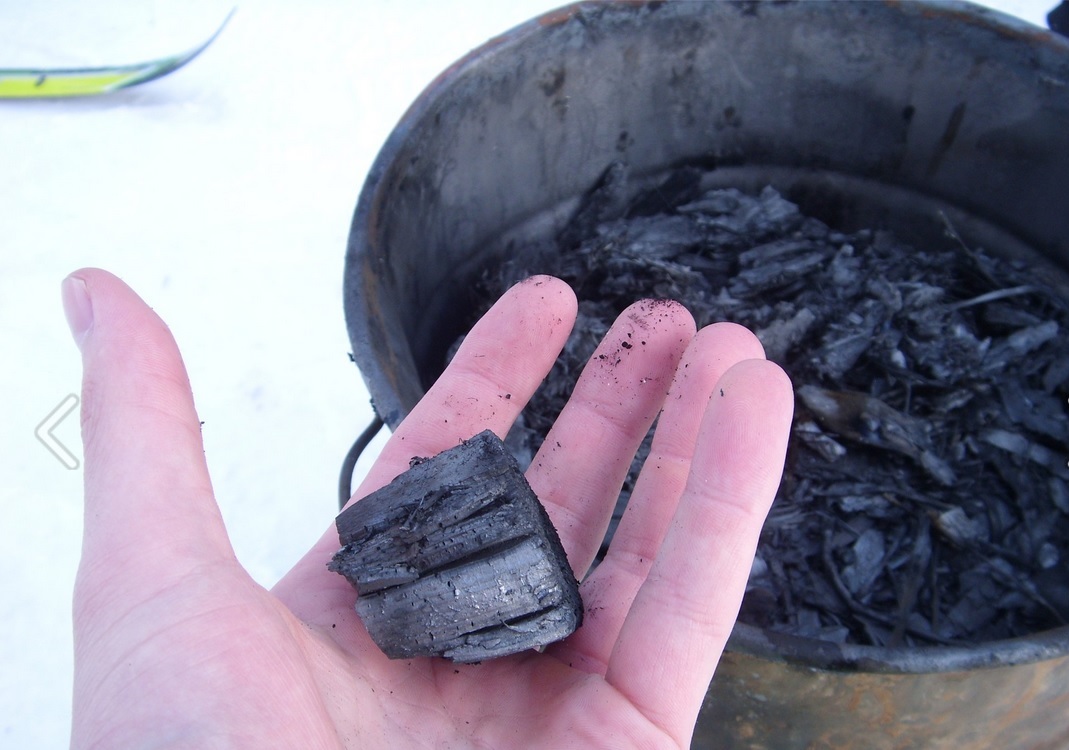After years of investigating biochar, which promoters have touted as a potential climate change fix, DeSmog is releasing its findings on the science, claims, and controversy surrounding this approach to sequestering carbon.
Biochar is the product of plant or animal products (biomass) undergoing pyrolysis, a high-heat chemical reaction, to convert the carbon-containing biomass to a stable, non-decomposing form of charcoal. Introduced to mainstream audiences in a Time Magazine article from December 2008, biochar as a climate geoengineering technology has hit a number of peaks and valleys since then. In that time, its best chances at reaching commercial scales so far have failed, according to a new DeSmog report, Biochar: Climate Change Solution or False Hope?
Biochar’s failure to date is due to a number of reasons, such as the lack of scientific consensus surrounding its ability to sequester carbon indefinitely, the vast amounts of land needed to produce biochar at a large enough scale to affect the climate, and the lack of legislative or regulatory frameworks required for investment in commercial-level production.
While some big money is pouring into biochar, particularly via the start-up Cool Planet Energy Solutions, the efforts to market the product as a climate solution appear stronger than the current scientific evidence on its CO2 sequestration capabilities. In fact, when the American Carbon Registry, which exists to promote carbon trading markets, analyzed the nascent biochar industry’s business protocol for scaling up, the registry rejected the plan due to lack of scientific support surrounding its claims.
Released in March 2015, the registry’s protocol review concluded that “the scientific literature does not provide sufficient evidence of the stability of soil carbon sequestration in fields.” A 2011 U.S. Government Accountability Office (GAO) report also poured cold water over the technological feasibility of scaling up biochar production.
Led by the trade association and lobbying group, the International Biochar Initiative (IBI), biochar has faded into the background in the two years since that report came out, and IBI‘s budget has plummeted.
The new DeSmog report shows that among the most enthusiastic supporters of biochar have been the oil and gas industry, which sees biochar as a tool to “offset” its fossil fuel emissions, particularly in North America.
For example, in Alberta, Canada, the biochar industry and the tar sands industry have attempted to team up to create a carbon offset scheme through the Alberta Offset System. IBI also led a lobbying effort to insert biochar into the American Clean Energy and Security Act in 2009 (best known as the Waxman-Markey carbon offsets bill), and into another stand-alone bill called the WECHAR Act.
Cool Planet’s business plan, meanwhile, appears to be the biochar industry’s best hope of scaling up in the U.S. However, its science remains unproven, lacks the scientific standard of peer review, and is considered proprietary business information.
The other major effort to scale up biochar in the U.S., led by the company Mantria, ended in a major federal fraud lawsuit. The U.S. Department of Justice charged the company’s executives with promulgating what has been described as the “biggest green scam to date in the United States.”
These details and much more can be found in DeSmog’s new six-part report on biochar:
1.) Biochar 101: Climate Savior or False Hope?
2.) Is Deploying Biochar as a Climate Geoengineering Tool Scientifically Premature?
5.) Cool Planet: The Biochar Big Leagues and ‘Shoddy Science’
6.) Biochar: A Geoengineering ‘Shock Doctrine’
Momentum on biochar as a climate salvation, for now, has reached a relative standstill. But the industry has already written the playbook for pushing its product, and should that momentum turn around in the months and years ahead, the biggest question will be: Can research confirm biochar’s potential as a climate change solution, or is it just another form of greenwashing?
Find out in the DeSmog biochar report.
Main image credit: K.salo.85, Wikimedia Commons
Subscribe to our newsletter
Stay up to date with DeSmog news and alerts







